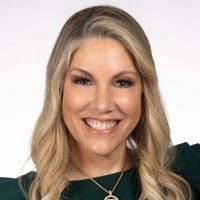
Here’s a fact: Many female clients leave their financial advisors soon after their husband dies. I am usually on the receiving end of this. The client attrition rates are even higher after a divorce.
As high as these numbers are, they’re not really that surprising considering that 40% of women surveyed say their advisors often ignore or dismiss what they have to say and 62% of women say their advisors don’t understand their unique investment needs.
Why is this? I can share some insight about what I’ve seen among my own female clients.
Most clients that come to me are at a crossroad in their life. Most have never worked directly with an advisor. Some have worked indirectly with an advisor hired by their ex or late husband. My clients often tell me they felt they were never heard or listened to, and that the advisor always used numbers and investment language they did not understand.
I’ve also heard, “I was patronized if I asked questions” or “He would not make eye contact with me. I was just there.” And even, “Sometimes I would pick up a magazine and start reading it right in the middle of the meeting; he wouldn’t even notice.” I hear these stories all the time.
What’s not working
Clients have also told me that they were not that interested in managing their finances, or that they and their spouse simply divided and conquered tasks. Traditionally, the women did the household and children stuff and the men did the money stuff. Although these roles are changing, these norms are very deeply rooted. But conquering and dividing doesn’t work with divorce or widowhood.
Research shows that women are also more likely to feel stress around finances. Stress is another factor. According to a Bankrate survey, 46% of women said money had a negative impact on their financial health, compared to 38% of mien.
But women are intuitive! And, in fact, women are great planners. They plan weddings, vacations parties. They just don’t usually plan their retirements! A women can do anything she puts her mind to.
What women need
Women need planning more, not less, than men! They typically live longer, earn less, save less, invest more conservatively and spend more money on healthcare! In fact, 90% of women will be responsible for their finances exclusively at one point in their lives. Women are more complex clients than men who generally want to know how much they beat the S&P 500. In my entire three-decade career, I have never had a women ask me that.
A financial advisor’s job is inherently quantitative. But money is deeply personal, and the process of planning most often involves a client’s complex relationship with money. Planners who can engage with these emotions can motivate clients, plan more holistically, and improve planning outcomes.
Some people talk about the softer side of financial planning. It is interesting that there is really no definition for this. “Softer” typically means emotional or touchy-feely stuff that women are usually better at. Connecting with clients on a deeper emotional level or making them part of your world can be especially important with female clients.
Getting started
That said, you shouldn’t assume that every female client is emotional and touchy feely. You have to get to know them individually. Every person is different in how they approach money and what they want out of an advisor relationship.
One of my clients was very nervous when I first met her in her early 70s. She thought she didn’t have enough money and was afraid of the stock market. Each time we met, I showed her a year-over-year graph of her net worth. It rose most years, except for 2008. She spent less than she made and her investments were in a 60/40 balanced portfolio. She always asked me, “How much do I have?” I responded by showing her the graphs and telling her she was OK. Every time, she relaxed a little more. Now, after 20 years working together, she says she can sleep and she never worries anymore, at least about money.
You may also want to consider sharing some details of your life and your goals with your female clients to build trust and lead by example. Advice coming from a trusted friend who is also a fiduciary to me is above reproach. If you always put your clients’ interest first and don’t have conflicts of interest, it makes it easy to deliver and implement.
Additional suggestions
Here are some more ideas on how to attract and retain female clients.
- Be authentic. Women can feel in their gut if the advisor is being straight with them. Be the person you would want your mom to go to.
- Listen, hear and see them. Get to know who they are, what is important to them, and what they’re afraid of. Even if they don’t know what questions to ask, tell them, “Think about capital gains and taxes in your portfolio. This is where working with me will add value.”
- Follow their timeline. They are busy doing it all, so it might take them more time to review, process and even run your proposal or suggestions by other friends and confidents. They take longer to close but are worth it; don’t give up. I only give up if I am getting ghosted, meaning they are ignoring my calls, texts and emails. It hurts me because I care for these people. I don’t understand what would make a person never respond again.
- Never do a hard sale. I know that 75%-85% of men in our industry ask for the business over and over again. But I never wanted to sound like a used car salesperson. I don’t even consider myself a salesperson. Instead, I think of myself as a consultant or an attorney giving advice. They can choose to take it, because it is in their best interest, or reject it. If they reject, this is usually indecision rather than a straight-out rejection. It reminds me of the Alanis Morissette lyric, “It’s the good advice that you just didn’t take.”
- Be empathetic. Put yourself in the client’s shoes and feel what they are feeling. I happen to be an empath so this is very natural for me and I am not sure if this skill can be taught. When a client is hurting, I hurt and I want to ease their pain and anxiety. Money is very emotional and tied to so much more than just the money itself. That’s why we are also therapists.
- Teach her, don’t tell her. Similar to the well-known proverb, “If you give a woman a fish, you feed her for a day. If you teach a woman to fish, you feed her for a lifetime.” I am a teacher by trade. Giving and imparting knowledge feels good and like the right thing to do. I always say I teach money instead of history, but sometimes I teach the history of money.
Women need and should have a financial advocate! If you’re unsure of whether your practice is female friendly, I suggest looking at the questionnaire that Kathleen Burns Kingsbury includes in her book, “How to Give Financial Advice to Women.” See where you are. Most women should be at 100%. As for men, you may have your work cut out for you, but you can get there!
Cary Carbonaro, CFP, MBA, is SVP, director of Women & Wealth at ACM Wealth, the wealth planning team of Advisors Capital Management. She was appointed and has served as a CFP Board ambassador since 2014. Cary is the author of “The Money Queen’s Guide: For Women Who Want Build Wealth and Banish Fear.” She has spoken all over the world about financial literacy for women. You can reach her at cary.carbonaro@advisorscenter.com.







